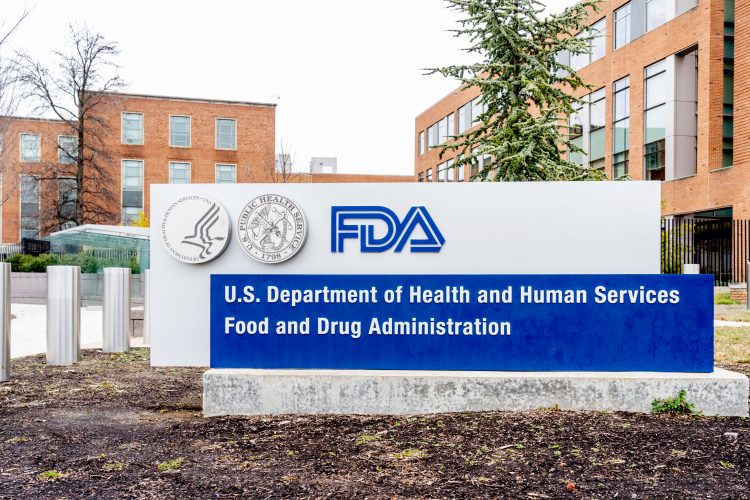The FDA Foods Coalition
- Like
- Digg
- Del
- Tumblr
- VKontakte
- Buffer
- Love This
- Odnoklassniki
- Meneame
- Blogger
- Amazon
- Yahoo Mail
- Gmail
- AOL
- Newsvine
- HackerNews
- Evernote
- MySpace
- Mail.ru
- Viadeo
- Line
- Comments
- Yummly
- SMS
- Viber
- Telegram
- Subscribe
- Skype
- Facebook Messenger
- Kakao
- LiveJournal
- Yammer
- Edgar
- Fintel
- Mix
- Instapaper
- Copy Link
Posted: 19 December 2023 | Brian Ronholm, Roberta Wagner | No comments yet
Brian Ronholm and Roberta Wagner explain the reaction to the recent FDA restructuring and suggest where improvement still needs to be made.


By Brian Ronholm and Roberta Wagner
When the FDA Foods Coalition was first launched in October, many were surprised at just how diverse its makeup was. It is made up of consumer advocates, food industry representatives, public health groups and state and local regulators that rarely find themselves on the same side of an issue. However, we launched this coalition because a common thread brings this diverse collection of groups together – the need for a strong, unified and modernised FDA Human Foods Program that can carry out its mission focused on prevention with more accountability and transparency.
Many of the organisations in the FDA Foods Coalition became frustrated over the years with how the structure, governance, and performance of the agency’s foods program hindered its responses to recalls, stymied efforts to implement a culture of illness prevention, and delayed initiatives to decrease diet-related chronic diseases. The FDA seemed to struggle in performing its central mission of protecting consumers and enabling the food industry to operate effectively.
The case for reform
The 2021-2022 infant formula crisis in the US was merely one symptom of the overall problem and it exposed the greater structural and cultural issues that have long plagued the agency. It was during this episode that many of FDA’s food troubles were outlined in a formative, investigative piece written by food writer Helena Bottemiller Evich for Politico. It had become increasingly clear that confidence in the FDA foods program was eroding among consumers, industry, state and local officials, and other stakeholder groups.
Recognising the need for reform, FDA Commissioner Robert Califf ordered an external review of the agency’s foods program that was conducted by the Reagan-Udall Foundation (RUF), which concluded that the FDA’s culture, organisational structure, and governance model undermine its effectiveness. As a result of the findings, Commissioner Califf announced a redesign plan that would adopt many of RUF’s recommendations, including the recent appointment of Jim Jones as Deputy Commissioner of its Human Foods Program to be the fully empowered leader overseeing the program.
The FDA Foods Coalition supports the new proposed redesign plan because its implementation would help create a modernised, effective foods program and facilitate greater transparency, accountability and meaningful stakeholder engagement. The adoption of the RUF report recommendations is critical and the coalition intends to work closely with the FDA to ensure that they are incorporated into the redesign plan.
Specifically, the coalition will focus on several key principles and will work to ensure that the FDA Human Foods Program:
- Establishes a management system that fully integrates the Human Foods Program on policy, resource management, and field operations, and leads a program-wide transformation that prioritises the shift to a public health prevention culture in headquarters and field operations.
- Develops and nurtures a culture where regulatory decision-making is focused on consumer safety and public health, rooted in scientific evidence and FDA’s legal framework, and occurs in a timely and predictable way.
- Prioritises meaningful stakeholder engagement and collaboration in regulatory priority setting and decision making based on science-driven and effective risk management principles, maximum transparency, and data sharing.
- Establishes a stronger, more cooperative relationship with state, local, and tribal governments, including fulfilling the FSMA vision of a National Integrated Food Safety System.
- Formulates a budget strategy that considers stakeholder input and includes a well-defined, prioritised agenda and clarity and transparency on how foods program funding would be allocated.
We are thrilled by FDA’s recent announcement that its reorganisation package establishing the Human Foods Program and office of inspections and investigations has entered the final phase of approval. This milestone and the filling of key leadership positions including the Deputy Commissioner for the Human Foods Program and the associate commissioner of regulatory affairs will help address structure, governance and leadership issues that have plagued the agency’s foods program for many years.
With that said, the agency must continue to address longstanding performance issues and to transform the program to one that is prevention and action oriented through a full integration of subject matter experts, policymakers, inspectors and by making appropriate cultural changes. The coalition has expressed an interest in working with the agency to define what success looks like and to establish associated metrics. We intend to support the agency through this transition while also holding it accountable for meeting commitments to create a human foods program that makes timely science and risked based decisions in a transparent way through, in part, robust stakeholder engagement.
The coalition currently intends to focus exclusively on supporting the implementation of the proposed FDA Human Foods Program redesign plan. Deputy Commissioner Jim Jones has committed to meeting with the coalition every quarter to provide a progress update on the plan. Coalition members also expect there to be meaningful dialogue with the agency as it works through the details.
At some point in the future, the coalition may advocate for other issues related to the foods program when there is unanimous consensus among coalition members. For instance, a number of coalition members believe that the FDA needs additional funding to strengthen its food safety and nutrition programs. However, there are other groups that are hesitant to support additional funding until there are assurances that the FDA is adequately implementing the reform plan. These groups also would like to see full transparency over how funds are invested in the foods program before advocating on the agency’s behalf for a budget increase.
Consumers depend on the FDA to be effectively organised and governed to support and oversee industry efforts to prevent food safety risks and reduce diet-related chronic diseases. Likewise, industry needs a strong, unified, and modernised FDA to facilitate innovation, growth, and the production of safe, nutritious foods that are accessible and affordable for all consumers. The member organisations of the FDA Foods Coalition will work together to support and hold the FDA accountable for implementing changes to its human foods program that are critically important to all food system stakeholders.







